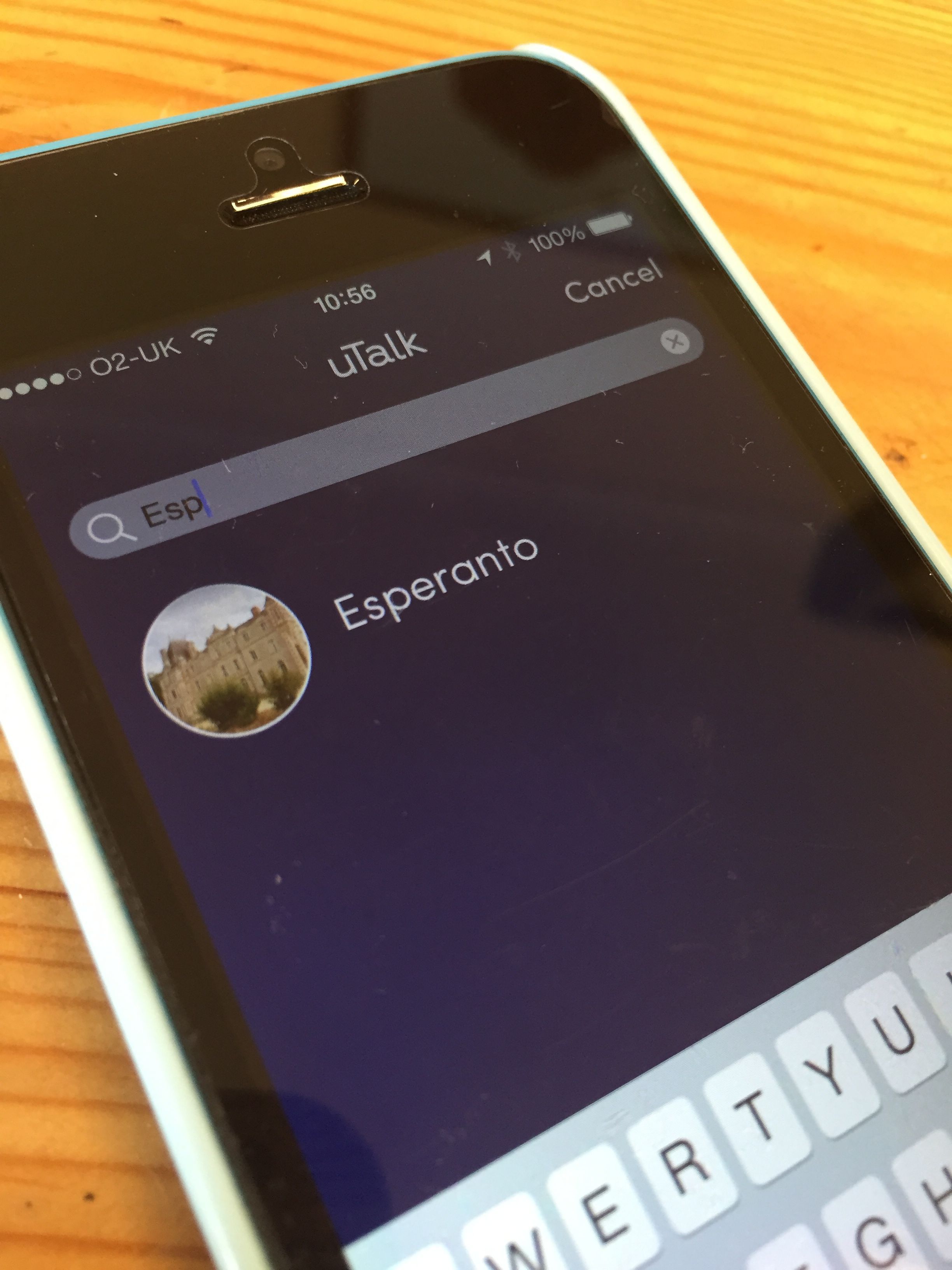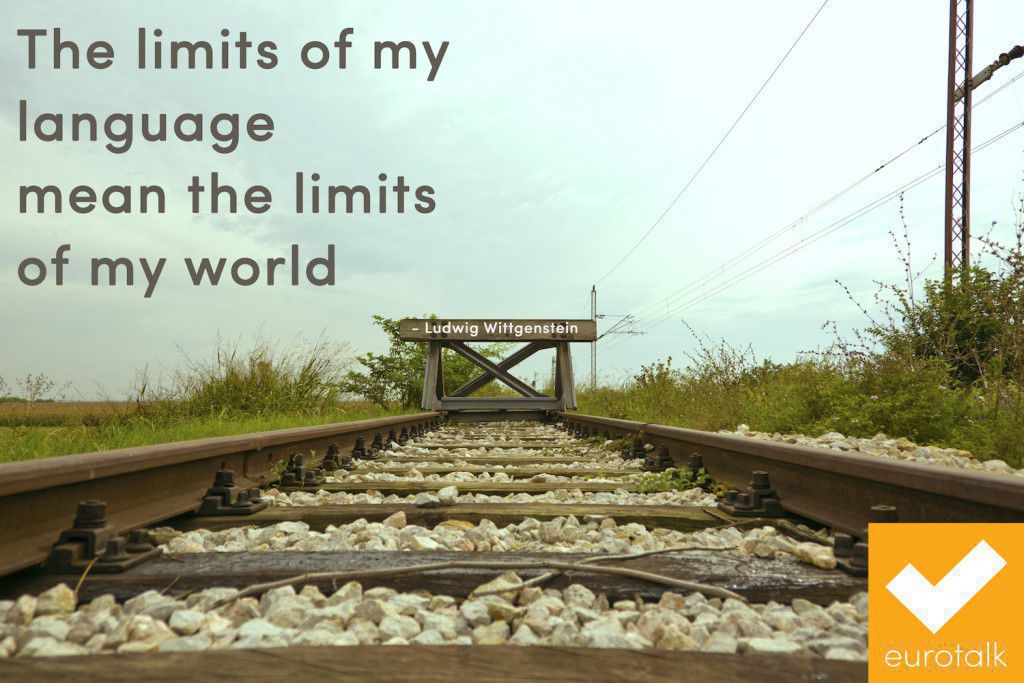When is a cake not a cake?
You might not believe it, but I regularly arbitrate fairly ferocious arguments about cake. And it’s not because my colleagues can’t share cake (although this has been known to be a problem in the past).
The reason is that this little word, which you would think would be a simple thing to translate, actually gets people quite upset. Throughout the world, different sorts of cake prevail, and some people (understandably) get quite grumpy when you present them with the wrong type of cake. It’s important stuff.
 One of our most recent additions to the uTalk app is Esperanto, where we had to make a very difficult decision about whether to translate the phrase ‘piece of cake’ (available in uTalk Essentials because, let’s face it, it’s essential vocab), as ‘peco da torto‘ or as ‘peco da kuko‘. For English speakers, ‘kuko’ was favoured because it is close to ‘cake’, and therefore brings to mind a big, squashy Victoria sponge. ‘Torto’, on the other hand, inevitably conjures something which is not a cake at all, but a tart – or even a flan: something flimsy and possibly, horror of horrors, covered with fruit.
One of our most recent additions to the uTalk app is Esperanto, where we had to make a very difficult decision about whether to translate the phrase ‘piece of cake’ (available in uTalk Essentials because, let’s face it, it’s essential vocab), as ‘peco da torto‘ or as ‘peco da kuko‘. For English speakers, ‘kuko’ was favoured because it is close to ‘cake’, and therefore brings to mind a big, squashy Victoria sponge. ‘Torto’, on the other hand, inevitably conjures something which is not a cake at all, but a tart – or even a flan: something flimsy and possibly, horror of horrors, covered with fruit.
Nonetheless, in the final stages of the battle, ‘peco da torto’ won, and went through to the final translation. Here’s why: our app is used all around the world by people who can learn from their own native language: we currently have 128 languages in uTalk, and people can learn any one of these from any other. For Esperanto, this is particularly important, because Esperanto is a language that nearly all Esperantists (barring a maximum of a few thousand native speakers) speak as a second language, making the Esperantist community very multinational.
So we want to make our Esperanto translation as internationally relevant as possible. And for most Europeans, at least, ‘torto’ will bring to mind a fairly generic type of cake, whereas ‘kuko’ might be slightly less familiar. Taking just a few European languages, we’ll see that in Russian we have торт, Italian torta, Dutch taart, Spanish tarta, Croatian torta, Hungarian torta. Both options would have worked, but ‘torto’ won the more international vote, and when it comes to Esperanto that’s a pretty important factor to consider.
What do you call a cake in your language? Let us know!
Nat
Why learn Esperanto?
Saluton! Mia nomo estas Nat, kaj mi lernas Esperanton.
Whilst others jet-set away to sunny beaches and tropical climes this summer, my plans are slightly more academic. I will be learning Esperanto. OK, I’ll take a break too, but I’m really excited about my summer goal, and I’m hoping to achieve it within two months.
What, Why, How?
All good questions. Let’s start with ‘What’.
What is Esperanto?
Esperanto is a language invented by Ludwig Zamenhof, whose idea was to create an international, apolitical language which is very, very (very) easy to learn. Since its creation in the 1880s, it’s seen surges and declines in popularity, and is currently spoken by up to two million speakers, and – quite amazingly – up to 2,000 native speakers. Esperantists place a heavy emphasis on how speaking and engaging with Esperanto makes people operate on an equal footing, and can open up communication opportunities all over the world.
Why learn Esperanto?
 So why learn it? Unlike with other languages, you don’t have the goal of going to the target country to finally try out some of your new Esperanto phrases. There is no Esperanto country, of course. But Esperantists tend to be incredibly friendly and welcoming to those who learn the language, making it easy to find conversation partners or groups, especially in the age of the internet. Esperantists even have their own ‘Passport Service’, by which travelling Esperantists can find locals who are willing to open their houses up to fellow speakers, making it easy to travel abroad and widen your Esperantist community.
So why learn it? Unlike with other languages, you don’t have the goal of going to the target country to finally try out some of your new Esperanto phrases. There is no Esperanto country, of course. But Esperantists tend to be incredibly friendly and welcoming to those who learn the language, making it easy to find conversation partners or groups, especially in the age of the internet. Esperantists even have their own ‘Passport Service’, by which travelling Esperantists can find locals who are willing to open their houses up to fellow speakers, making it easy to travel abroad and widen your Esperantist community.
Personally, I’m mostly in it out of fascination. I’ve heard how easy it is to learn and I want to see for myself how much I can achieve in two months. During our uTalk Esperanto recording, I picked up a couple of the basics and they’ve stuck with me, which has encouraged me to think that I might be able to pick up a lot more fairly quickly.
I’m also interested in the application of Esperanto, beyond just learning it for personal enjoyment. Because the language is so simple (just 16 grammar rules!) and completely regular (yes, completely!), it can be effectively used as a bridge language between communities who otherwise might struggle to communicate. It’s also been trialled extensively in primary schools, where the logic goes that teaching Esperanto enables children to get to a very high language standard very quickly, so that they can start being creative in a foreign language early on. They can then transfer the skills over to other languages they study later: effectively, they have not just learnt Esperanto, but learnt how to learn a language. And done it without the chronic frustration of trying to remember how the irregular past participle should be formed, which taints most people’s memories of school-day French and makes them feel, even as adults, that they ‘cannot’ learn a language. Instead, children can chatter away with relative fluency, experiencing the liberation of communicating in another tongue at a really young age. To learn more, watch this video:
I also like the sound of it. To me, Esperanto has a slightly Eastern European tinge, with a mish-mash of vocabulary which I can sometimes recognise from other languages. Already, as an English speaker, I am familiar with the following basic words:
Jes (Yes)
trajno (train)
Mi lernas (I learn)
boato (boat)
fiŝo (fish)
And from other languages, I recognise:
Dankon (Thanks)
fermita (closed)
ombro (shade)
glacio (ice)
Where am I starting from?
I’m a total beginner: I haven’t ever picked up an Esperanto book, and I don’t own one. However, from my interaction with our Esperanto voiceover artists and translators, I have picked up a few things which in other languages would take me weeks of effort. So I feel like I’m starting from an advantage. What I know is this:
Adjectives
Always end in an -a. To form the opposite of the adjective, you just add ‘mal-‘ in front of it. So:
Granda – big
Malgranda – small
Fermita – closed
Malfermita – open
Vera – true
Malvera – false
Nouns
Always end in -o. Always! To form the feminine, you just add ‘-in-‘ before the final ‘o‘:
turisto – turistino
aktoro – aktorino
kantisto – kantistino
Verbs
‘mi‘ is ‘I’, ‘ŝi‘ is ‘she’, ‘li‘ is he’, ‘vi‘ is ‘you’, and present tense verbs always end in ‘-as‘. So:
Mi lernas – I learn
Li lernas – he learns
Vi lernas – you learn.
How will I learn?
By any means possible. Not coincidentally, uTalk Esperanto has just been released, and that’s going to help me hugely with pronunciation and vocabulary. I’ve also got Katalin Kováts’ Poŝamiko (‘Pocket friend’), a book to guide me on the basics, and then all of the resources listed at http://en.lernu.net/ – more than enough to keep me going for the next few months. After that, who knows – perhaps some conversation classes?
Wish me luck!
Nat
If you’d like to join Nat in learning Esperanto, download uTalk from the App Store to get started!
5 great songs to help you learn English
Everyone knows the key to language learning is immersion, but upping sticks and moving to the country where your language originates from is a huge commitment and not always possible.
However. There are a few things you can do to help your learning along. Watching films (with or without subtitles, depending on how brave you are), reading an online magazine or newspaper entirely in the language you’re trying to learn, and if you’re really fearless, try changing the language on all your devices – phone, tablet, computer and so on. Just be sure you know enough words to change it back.
 My personal favourite way though, which I actually use myself when I am learning, is to listen to music. There is no quicker way to immerse yourself in a language, learn pronunciation, subject word order, vocabulary, colloquialisms, hidden meanings and double entendres, and so on. The list is technically endless and completely adaptable to whatever level you are.
My personal favourite way though, which I actually use myself when I am learning, is to listen to music. There is no quicker way to immerse yourself in a language, learn pronunciation, subject word order, vocabulary, colloquialisms, hidden meanings and double entendres, and so on. The list is technically endless and completely adaptable to whatever level you are.
Here are my five favourite English songs that I use in class with my students; what would you add to the list?
Passenger – Let Her Go
This song is perfect for learning English. The song is played just about everywhere so it’s instantly recognisable, the pace is not slow enough to make you feel daft but not so quick as to make you feel lost, and the most important thing is that Mike Rosenberg, the singer and face of Passenger, has a beautiful, clear voice that not only is nice to listen to but easy to understand.
Coldplay – The Scientist
Another really good song for learning. Clear lyrics, slow pace, understandable voice, (thanks, Chris Martin), and an interesting video to talk or think about once you know all the words. Resultant group discussions have included trains, drinking and driving, graffiti, and the environment. Watch the video if you’re not sure why.
Snow Patrol – Chasing Cars
What is good about this one is not so much the pace of the song but the simplicity of the lyrics. The verses are really short, and Gary Lightbody’s pronunciation on this one is a gentle exposure to the Irish accent in song. If you choose this song as one of the first to learn with, you’ll feel a real sense of achievement quickly because it’s such a simple one to learn.
Muse – Feeling Good
Music trivia for you first: did you know that this song was first written by Anthony Newley and Leslie Bricusse for the 1965 musical The Roar of the Greasepaint and has been covered by, amongst others, Nina Simone, Sammy Davis Jr and Michael Bublé? I have chosen the Muse version because I personally love Muse, plus Matt Bellamy’s voice on this one is slightly harder than my previous suggestions. Why is this a good thing? Well, the song is very recognisable and most people have heard at least one version of it, so when you hear this version you’ll likely know some of the lyrics already and will be exposed to yet another accent – and you’ll understand it. Bonus!
Maximo Park – Acrobat
I am a mean teacher. Or I can be. So when I am presented with a student who says they can understand all English lyrics and I know otherwise, I give them this track to try. Because all the verses on this track are spoken, which sounds easy, doesn’t it? It’s not. The beautiful Paul Smith is from Teeside, so firstly we have the exposure to the accent and secondly, he doesn’t speak slowly at all. By the time you get to the first chorus you’ll probably throw your pen down in relief and look at your paper in alarm with the five words you’ve managed to scribble down. But it’s worth it. I promise.
If you’re not sure how to use music to learn a language, here’s my ‘how to’:
- Choose a song and listen to it a couple of times.
- Listen again and start writing down the lyrics that you recognise. Repeat as often as your patience allows.
- Look up the lyrics, either with something like AZLyrics or Lyric Translate, the latter of which will actually have your lyrics and the translated version side by side.
- Watch a lyric video so you can see the words whilst you hear them. Singing is optional but hey, why not?
Sound easy? Give it a go!
Kelly
Quote of the week: 27 Jun 2015
“The limits of my language mean the limits of my world.” Ludwig Wittgenstein
The ups and downs of coming home
When you work abroad as an English as a foreign language teacher, coming home for the occasional visit and obligatory Christmas festivities means there are a number of things to look forward to. Personally custard, gravy and drinkable tap water are pretty high up on my list, but that’s just me. Friends, family, Wetherspoons breakfast… there are all sorts of things that beckon you and make home, home.
But there are also pitfalls, things you forget about and either take for granted or that have become so instilled, you don’t realise you are doing them.
Here’s a few of mine. Play snap?
Roads
No matter how many times I come back, I always get flummoxed by the roads. Left hand lane, right hand lane… I look both ways to prevent becoming a bug stain on a car bonnet every single time. And once I tried to get on the driver’s side of a National Express coach. The driver patted his knee and asked me if I’d like to drive. Possibly not…
Language
Yes, I should know better. But when I want to know the price of something I always find myself speaking in the language of the country from where I have just come – currently ¿Cuánto es? to check a price and perdona when I bump into someone. Which I do. A lot. Clumsy…
Customs
My first cafe visit on arriving back to England involved me trying to kiss a stranger. Not because I’m a floozy, but because I’ve just come from Spain, and the double kiss thing is part of my everyday greeting. Honest.
Manners
Someone sneezes, I say everything apart from bless you as a result of a number of different colds in a number of different cities. Thank you. Pardon. Would you mind…? Sorry. Sorry to inanimate objects like doors and trolleys. All the time. No wonder people outside of the UK have the mistaken impression that we are very, very polite.
 Price checking
Price checking
When you first go abroad you convert everything back into pounds, but when you come back here after an extended stay away, everything is automatically put back into euros (or whatever currency you know). Which makes every shopping trip an accounting adventure.
How much?!
Somewhat in the category of price checking I know, but hear me out. If you’ve gone from having a jarra of beer that is 1,50€ and you’re presented with a pint that is around £3-4, an outraged and indignant yell is likely to escape your lips without even a thought.
Lack of privacy
Families. They mean well. Of course they do. In theory. But it doesn’t matter your age or circumstances, when you return home to the ‘family nest’, you will be bombarded with questions (‘when are you settling down?’), misplaced praise (‘oh, you’re so brave to go off travelling’) or enforced schedules (‘we’ll have breakfast at 7, lunch at 1, and dinner at 7:30. And this is your itinerary for your stay.’) When you’ve been used to your own space and doing as you please when you feel like it, coming home can sometimes be a stifling experience.
Envy
Yes. People who hate their jobs and their lives will envy you. They will covet your lifestyle of devil-may-care and say things like ‘I don’t know how you do it’ whilst plucking one child from their knee while another is attached round their neck, telling you about their plans for decorating the living room and showing off their latest car. We don’t judge you for your lifestyle, settlers (well, we do, just… quietly), so why judge ours? And if you hate your job so much, leave. That’s what we did. Nothing magical.
Catching up on gossip
Even about people you don’t know. Especially about them. See, while we’ve been off living our lives, running between classrooms or students’ apartments, jumping from train to metro to bus and wondering if the GPS on our phones will ever kick in and be helpful, life has continued at home too. And somehow, even though we’ve not been told about events, we are automatically assumed to know about them. I personally blame Facebook for that.
Travel, demystified
For some people, planning a new work route is daunting, whether using a satnav, Google Maps, or an A-Z. And if you have to travel to another city for business, well. Brave new world. But when you travel a lot because of work, train stations, airports and maps no longer phase you, and neither does the prospect of getting lost. Living in another country makes you realise that getting lost is actually no bad thing, merely an unexpected adventure. After all. If Bilbo had taken the ‘correct’ path he was ‘supposed’ to, we’d never have even known of Hobbitty adventures, elven legends and secret kings. Life is in the adventure, is it not?
A moment of doubt
There is sometimes a moment. When you look around at all the people who were once a part of your daily lives, getting on and doing their thing, living a different existence, and you think… why can’t I do that? Why can’t I just stay in one place for an extended period and do the settling thing? And then the moment passes. Because settling isn’t for everyone. Mortgages, the 2.4 kids, and the family saloon in the driveway is really not for everyone. There is nothing wrong with either way of living. And after a week or two, or sometimes a day or two, the call of leaving comes screaming and you start looking longingly at planes overhead or twitching every time you pass a train station. Off you go, traveller. Time to depart again. Home (and gravy) will still be here when you get back.
Has anyone else had similar experiences when coming home from travelling? Or do you have any stories to add? We’d love to hear from you 🙂
Kelly



